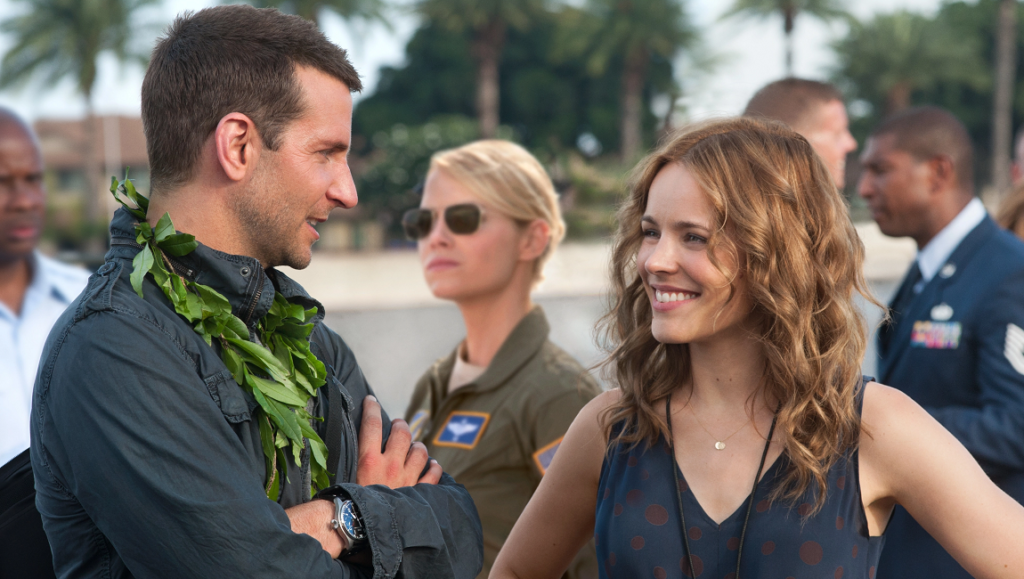It seems that Aloha, Cameron Crowe’s newest drama, is just him taking a mulligan on 2005’s widely (and somewhat unfairly) derided Elizabethtown. Both films feature a disgraced wunderkind returning to a community from which he’s become estranged in order to become emotionally rejuvenated with the help of a fiercely principled but alarmingly giddy ingenue. This time, rather than a failed prodigal son coming home for dad’s funeral, it’s Bradley Cooper as a defense contractor still psychologically recovering from a serious injury in Afghanistan who finds himself in his old stomping grounds in Hawaii where he’s expected to liaise between his up-to-no-good corporate master (Bill Murray, underused), the military, and the native Hawaiians. Oh, and he hasn’t been off the plane for even a minute before he runs into an old flame (Rachel McAdams), now married (unhappily, natch) with kids. The ingenue slot is reserved for Emma Stone as Capt. Allison Ng, a whip-smart fighter pilot whose “one-quarter Hawaiian” heritage has also instilled a deep belief in local spiritualism. Like not only Elizabethtown but also Almost Famous, Aloha centers on the healing power of collectives and their rituals (not to mention the love of a sexy girl), and even though all the drama centers on the travails of a lily-white middle class, the answers to their troubles lie of course in the rich traditions of Hawaii itself. Crowe clearly has nothing but respect and admiration for the Native Hawaiian community and Hawaiian separatist claims against U.S. sovereignty. Mostly he means to suggest that our modern capitalist society could learn a lesson or two from their ancient wisdom, but it’s still somewhat disingenuous that there are almost no Native main characters and that their main voice comes from a white lady. Unfortunately sidelined is a thread about the dismantling of NASA and its attendant exploratory optimism (and by extension America’s), which gives way to ruthless, spiritually crippling self-interest.
Compromised by scenes that crush awkwardly up against each other
Crowe’s facility with his performers remains strong (McAdams is especially solid as a woman struggling with her marriage without ever descending into teary histrionics or self-pity), but even that’s compromised by scenes that crush awkwardly up against each other. McAdam’s confession of a long-held, deeply crucial secret is nearly back-to-back with a bizarre bit about Chinese hackers sabotaging a satellite. And these generally acutely observed characters nevertheless often behave erratically, as when Cooper’s character suddenly snaps at Stone during an impromptu hike or Bill Murray’s tech billionaire bafflingly tells Cooper about his secret illegal plans for a rocket launch. Despite all this, a final scene featuring two characters sharing an unspoken truth packs such a wallop that it’s all the more inexplicable that this ostensibly intimate story about a bunch of damaged white folks getting their grooves back involves ancient Hawaiian ghosts and a subplot out of a Bond movie. It’s fairly indicative of just how far away Crowe and his film seem to have wandered from what could be much simpler goals.

